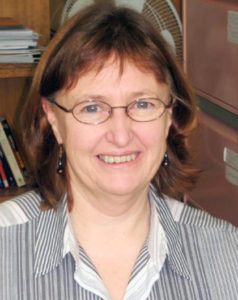Young kinship carers required for Melbourne University research
Fears that young people who care for child relatives are struggling from poverty and educational and employment disadvantage has sparked a new research project that aims to understand the problem better.
It is estimated that there are more than 10,000 young kinship carers in independent households across Australia, and far more living in multi-generational households – many of them from culturally diverse communities.
Meredith Kiraly, from the Department of Social Work at the University of Melbourne, hopes to better understand the experiences and challenges that young kinship carers face.
“We know that the numbers are there from the census figures. The fact that they are in this situation usually means there has been a trauma,” Ms Kiraly said.

Meredith Kiraly
Young kinship carers among newly arrived immigrant communities may also have particular needs that Ms Kiraly hopes her research will establish.
‘Young kinship carers’ are people aged up to 30 and care for brothers, sisters, cousins, other young relatives, or other young people in their community.
“We believe these young carers are typically struggling from poverty, educational disadvantage and subsequently employment disadvantages,” Ms Kiraly said.
Her research was originally motivated by census data from the UK, which discovered there were a surprisingly large percentage of sibling kinship carers, especially in England and Northern Ireland.
The data found that young sibling carers were over-represented in new immigrant communities. Ms Kiraly believes this may also be the case in Australia.
After extracting census data about Australian family relationships in two generational households, she will not only look at sibling carers but young kinship care arrangements more broadly.
“Because of this I have discovered there are a number of young aunties and uncles kinship carers as well,” Ms Kiraly said.
“Some young kinship carers I have interviewed are in extraordinary situations.
“One young woman was with child protection and looking after her younger brother in Adelaide. She described to me how she was expected to supervise her mother’s contact visits with the younger brother. Her mother’s behaviour was fairly chaotic.”
Having worked in the field for many years, Ms Kiraly said drug and alcohol problems featured very strongly in the kinship care scene.
Previous research on kinship care arrangements have focused on young people who have a caring role with frail aged family members or those with disabilities. These categories of young carers have more formal avenues of support, such as through Carers Victoria.
However the circumstances and support needs of young kinship carers is not yet known as they fall outside the remit of carer support services.
Ms Kiraly believes that young kinship carers from new immigrant communities may face trauma of a different sort, especially those who have migrated without their parents or lost parents in conflict.
She told of one young man, a recent immigrant to Australia living in Sydney and the primary carer of his two younger siblings, whose teenage sister is pregnant.
“With the addition of language barriers, facing a strange culture and sometimes different cultural norms, it’s important these carers’ voices are heard,” she said.
It is hoped that this research will help to extend grandparent carer programs to young kinship carers, and to provide an online support service especially for these carers.
Young kinship carers are invited to take the survey here.
Young carers willing to be interviewed in person can contact Ms Kiraly from the University of Melbourne on 0400 913 659 or mkiraly@unimelb.edu.au
The interview will take approximately one hour and participants will receive a $40 gift voucher.
Participation in both the survey and interview will remain anonymous.
More information about this project can be found here.
Carissa Gilham
AMES Australia Staff Writer












